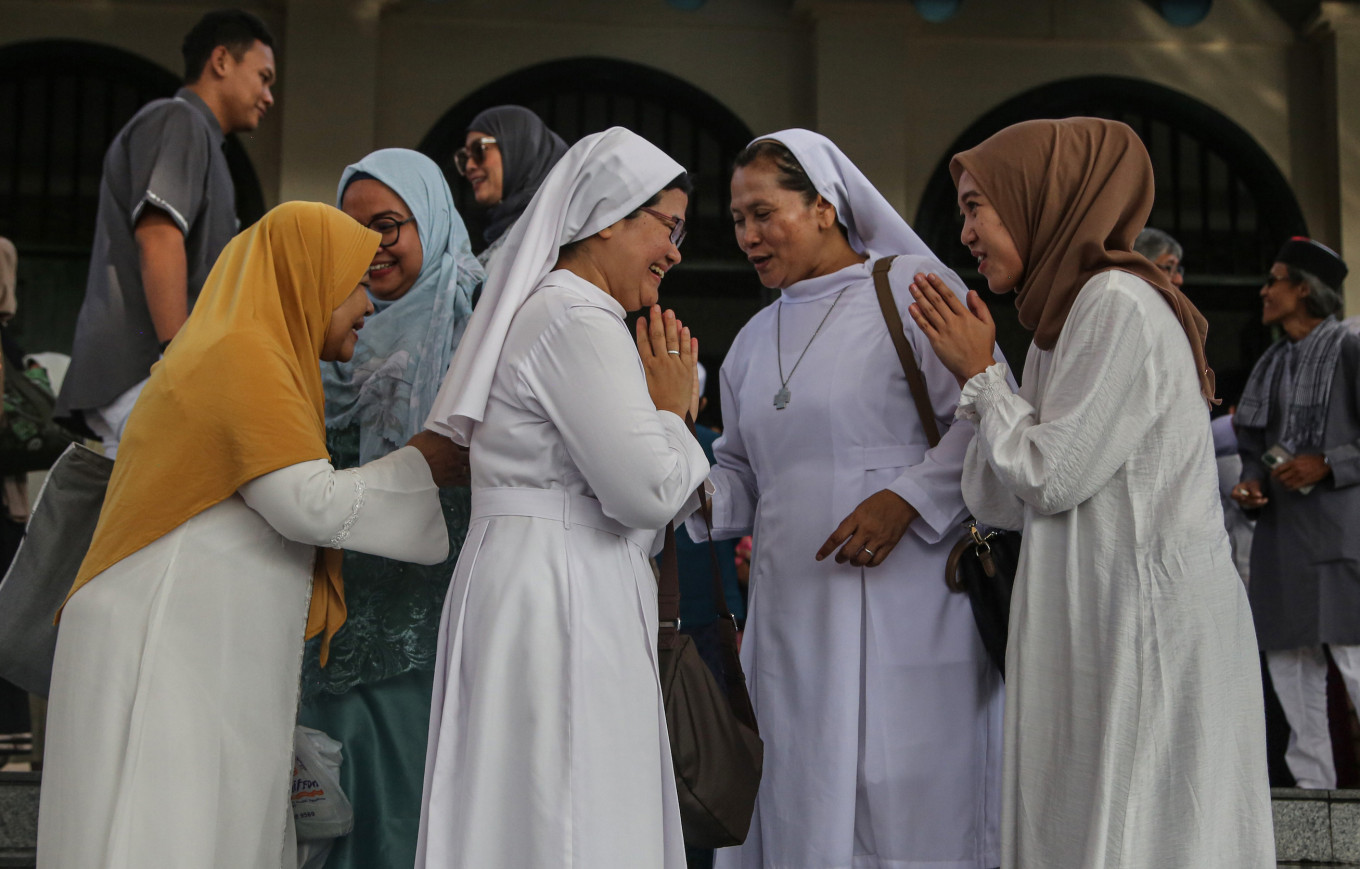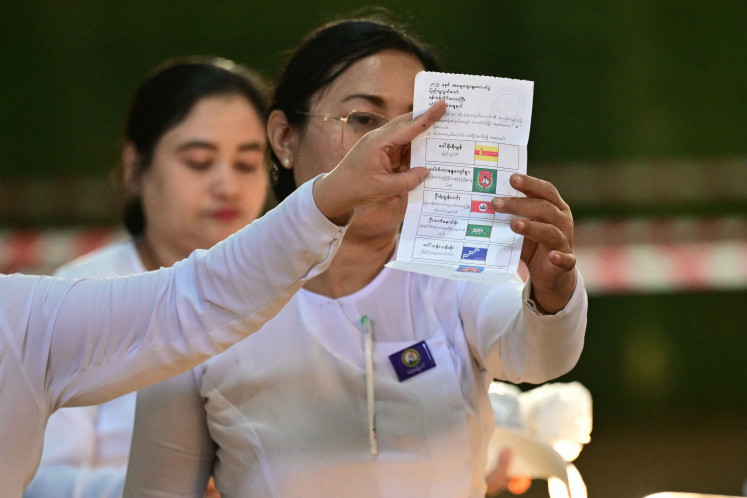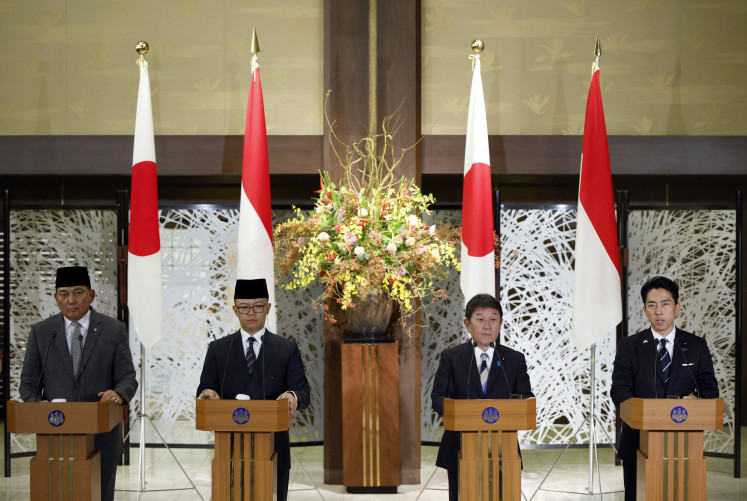Popular Reads
Top Results
Can't find what you're looking for?
View all search resultsPopular Reads
Top Results
Can't find what you're looking for?
View all search resultsThe fragile promise of pluralism, religious freedom in Southeast Asia
Governments may claim to promote harmony, but their actions often involve policing differences and privileging dominant faiths, leaving minority communities marginalized and vulnerable.
Change text size
Gift Premium Articles
to Anyone
S
outheast Asia is one of the most religiously diverse regions in the world, where Muslims, Buddhists, Christians, Hindus, Confucianists and practitioners of indigenous spiritual traditions coexist, often within the same communities and, in many cases, even within the same families.
This diversity is celebrated as a powerful strength, a vibrant tapestry woven from centuries of human experience and tradition. Yet, the reality of religious pluralism in the region is far more complex, and its impact on human dignity is both profound and far-reaching.
This tension was at the core of the discussions during the Human Dignity and ASEAN: Pursuing Peaceful and Inclusive Societies in Southeast Asia panel, which I had the privilege of speaking at during the Religious Freedom and Human Dignity Initiative Conference held in Hawaii on April 22–25.
In Southeast Asia, religious pluralism is shaped not by organic social consensus but by the influence of governments, dominant religious groups and nationalist ideologies. State-sanctioned religions, selective legal recognition and bureaucratic control over belief systems reveal that pluralism in the region is a fragile political construct, carefully managed and heavily policed.
In Malaysia, for example, Islam is constitutionally privileged, with laws restricting conversion, interfaith marriage and even the use of certain religious terminology. Myanmar’s political system enshrines Buddhism, marginalizing non-Buddhist minorities, with the Rohingya Muslims suffering the most severe consequences.
In Indonesia, while the principle of belief in one Supreme God recognizes six religions, and legal recognition of indigenous faiths has advanced; many religions, indigenous beliefs and non-believers continue to face legal ambiguities, social discrimination and exclusion from full protections.
In this context, religious pluralism is less a natural societal feature than a contested political process, often managed through majoritarian interests rather than a true embrace of diversity. Governments may claim to promote harmony, but their actions often involve policing differences and privileging dominant faiths, leaving minority communities marginalized and vulnerable. This delicate balance risks tipping into exclusion and violence.
This dynamic carries profound consequences for both majorities and minorities. Majorities, despite their dominance, often feel threatened, perceiving minority practices or external influences as challenges to national or religious identity.
Meanwhile, minorities experience structural marginalization, social stigma and, at times, violent exclusion. The resulting tensions deepen mutual suspicion and erode social cohesion, ultimately undermining the very possibility of peaceful coexistence.
The implications for human dignity are undeniable. At its core, human dignity is grounded in the inherent worth of every individual, irrespective of background, circumstances or identity. It is the foundation of fundamental rights, the rights that enable a person to lead a life of meaning, freedom and security.
Central to human dignity is autonomy, the ability to make choices and shape one’s own life without coercion. Equally vital is respect, the assurance that every individual will be treated with dignity, free from discrimination, violence and exploitation. Equality is also crucial, it ensures that all individuals enjoy equal opportunities, protection and treatment under the law.
Freedom of thought, speech and association are indispensable elements of human dignity. These rights are not mere privileges; they are essential for navigating a world where diverse beliefs exist side by side. Security, the assurance of safety and protection from harm, further empowers individuals to live their dignity fully, transforming it from an ideal into a lived reality.
These elements are not privileges granted by the state; they are inalienable rights inherent to every person. When any of them are eroded, the very essence of human dignity is diminished.
Religious freedom lies at the heart of this struggle. It is not simply about the right to worship; it is about the autonomy of conscience, the freedom to choose, to believe, or not to believe, without fear of coercion. This is a fundamental human right, a matter of dignity. When states curtail religious freedom, they do more than regulate public order; they violate the inherent dignity, equality and agency of individuals.
Moreover, constraining religious pluralism undermines the broader goal of building peaceful and inclusive societies. Social cohesion cannot be engineered by suppressing differences. The forced homogeneity of religious practice or belief not only breeds resentment but also erodes trust and fosters exclusionary politics.
The restriction of pluralism impoverishes not only individual freedoms but the very moral and intellectual fabric of society. By narrowing the scope of belief, it stifles the exchange of ideas, suppresses critical thinking, and weakens cross-cultural understanding — all vital to thriving in an interconnected, ever-evolving world.
ASEAN has long declared peace as a priority. Peace is not the mere absence of conflict but the active presence of justice, mutual respect and the full recognition of human dignity. As ASEAN prepares to adopt its Vision 2045, it must affirm an unambiguous commitment to upholding freedom of religion or belief as a foundation for lasting peace. To fall short would send a stark message that religious freedom and minority rights remain negotiable, sacrificed at the altar of political expediency, and that peace itself is compromised.
The path forward demands proactive governance. National laws must be reformed to guarantee stronger protections for both religious and non-religious communities. ASEAN must also establish effective regional mechanisms to confront religious discrimination and violence swiftly and credibly. It must support civil society, religious leaders and interfaith networks to foster dialogue, critical reflection and promote a deeper culture of mutual respect.
Parliamentarians must enact laws that protect religious freedoms, create platforms for interfaith dialogue and challenge discriminatory practices.
Defending religious pluralism is not merely about managing diversity; it is about affirming our shared humanity and building a future rooted in justice and dignity. True pluralism demands courage, visionary leadership and an unwavering commitment to equality, a willingness to allow diversity to flourish without fear, control or manipulation.
A just and peaceful ASEAN will emerge from the fearless embrace of difference, and not from the pursuit of uniformity.
***
The writer is executive director of ASEAN Parliamentarians for Human Rights (APHR).











